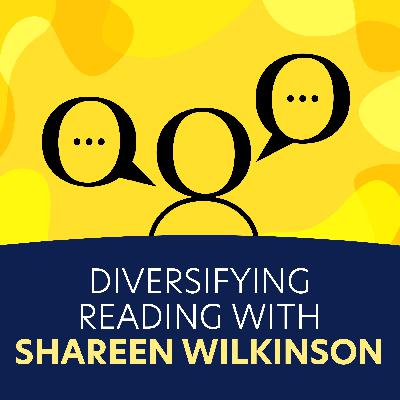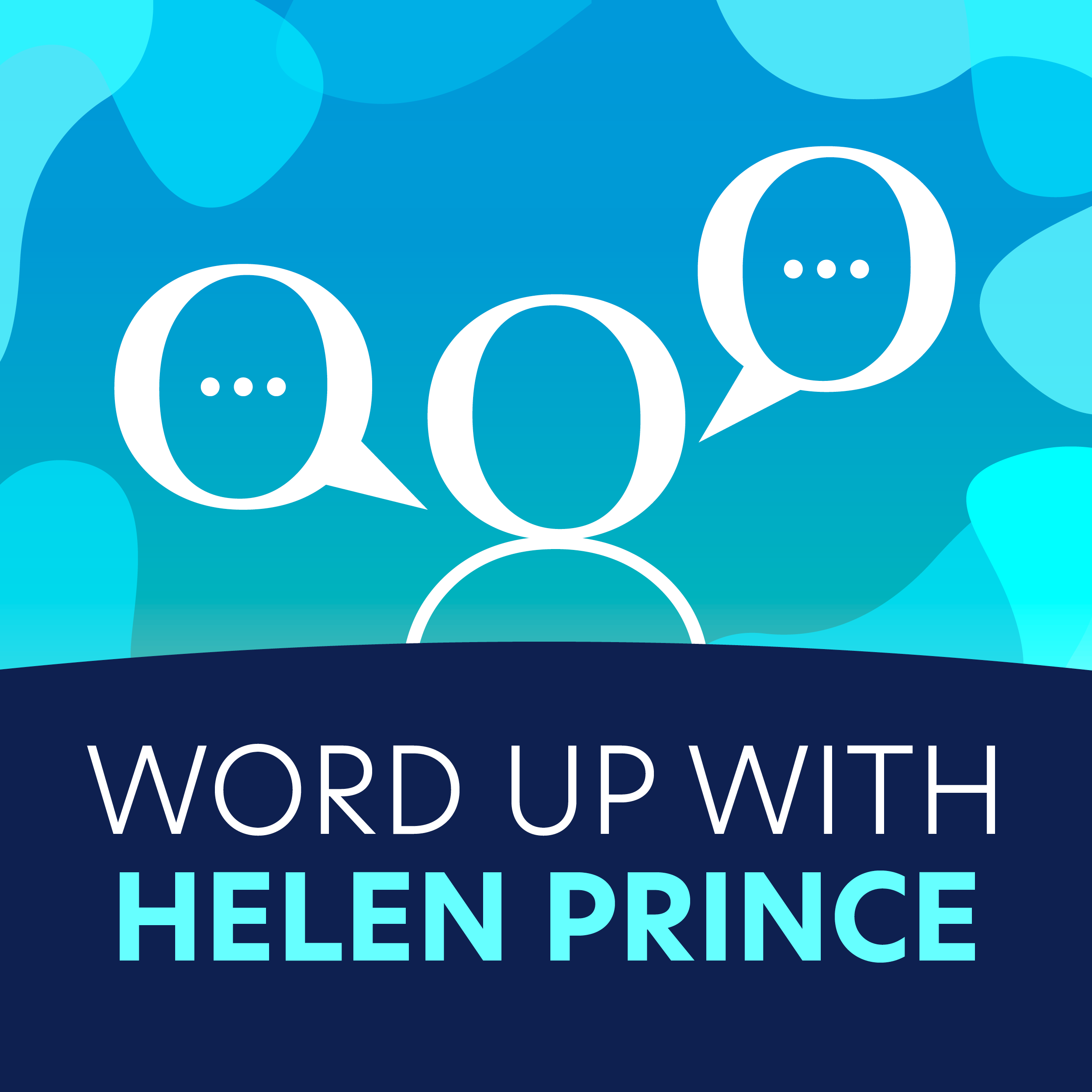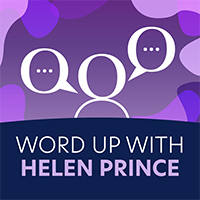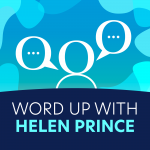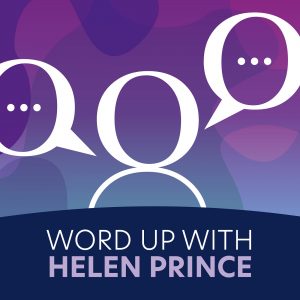Discover Oxford Education Podcast
Oxford Education Podcast

Oxford Education Podcast
Author: Oxford University Press
Subscribed: 111Played: 933Subscribe
Share
Description
This podcast brings together educational experts to discuss key issues in primary and secondary education. Enjoy fascinating insights and get practical tips to apply to your teaching. Brought to you by the Schools Team at Oxford University Press.
37 Episodes
Reverse
Darren Chetty
In this episode of Diversifying Reading with Shareen Wilkinson, Shareen talks to Darren Chetty about his involvement with Penguin and The Runnymede Trust’s Lit in Colour initiative. They talk about why it’s important for all children to have access to a representative range of books, as well as ideas to support parents.
Darren Chetty is a Lecturer at UCL Institute of Education and has taught in London primary schools for twenty years. His research focuses on philosophy for children, multiculturalism and racism. Among his many books, columns and articles, he is the author of ‘You Can’t Say That! Stories Have to be About White People’ an essay in The Good Immigrant, edited by Nikesh Shukla. Darren tweets at @rapclassroom
Further reading and support:
Read more about the Lit in Colour research and find out what we're doing at OUP to support the initiative, including lots of practical tips and reading recommendations to share with parents.
Penguin’s (in)complete book lists
The Good Immigrant: 21 writers reflect on race in contemporary Britain edited by Nikesh Shukla (2017)
Reflecting Realities Survey of Ethnic Representation in Children’s Literature CLPE November 2021
Critical Philosophy of Race and Education edited by Judith Suissa and Darren Chetty (2021)
Secret Gardens: A Study of the Golden Age of Children's Literature by Humphrey Carpenter (2009)
‘Mirrors, Windows, and Sliding Glass Doors’ by Rudine Sims Bishop in Perspectives: Choosing and Using Books for the Classroom. Vol. 6, no. 3, Summer 1990. (PDF)
Darren's 'Beyond the Secret Garden' column in Books for Keeps
Musical Truth: A musical history of modern black Britain in 28 songs by Jeffrey Boakye (2021)
Penny Rabiger
Helen Prince talks to Penny Rabiger about the importance of listening to young people and what we can learn from them about race, identity and social justice.
Penny Rabiger was a teacher for 10 years and has been working with social enterprises, charities and start-ups in the education sector since 2007. She was one of the founding directors of The Key for School Leaders, Head of Membership at Challenge Partners, and Director of Engagement with the Finnish edtech organisation Lyfta. Penny is a school governor at a north London primary school, Trustee on a south London multi-academy trust board, a member of the Haringey BAME achievement group and a Co-founder and Trustee of the BAMEed Network. Penny is a coach on the Leeds Beckett University Centre for Race, Education and Decoloniality's Anti-Racist Schools Award.
Further reading and support:
Penny tweets at @Penny_Ten and you can read her blog here
Learner identity is one of the pillars of the Oxford Smart Curriculum. Find out more and read the curriculum direction paper.
Nathan Burns
Helen Prince talks to Nathan Burns about his specialist subject, metacognition. Nathan explains the importance of embedding metacognition into day-to-day teaching, why modelling and monitoring are key approaches in the classroom, and the value metacognition plays in all areas of life, from poaching an egg to putting up a tent.
Nathan Burns is a teacher of Mathematics, Assistant KS3 Progress and Achievement Leader and More Able and Talented Co-Coordinator at David Nieper Academy in Alfreton. He is a former Metacognitive Implementation Lead, as well as the founder of metacognition.org.uk, which offers metacognitive resources and CPD. Nathan is passionate about teaching and learning, and has researched, written about and delivered CPD on metacognition for several years. He tweets at @MrMetacognition
Further reading and support:
Where does metacognitive modelling fit in the classroom? Read more from Nathan on the Oxford Education Blog.
Metacognition is one of the pillars of the Oxford Smart Curriculum. Read the curriculum direction paper.
Find out more about Oxford Smart Mosaic, an intuitive and impactful KS3 Maths course created by Oxford and Craig Barton which helps to embed mastery.
Kat Howard
Helen Prince talks to Kat Howard about curriculum implementation and how an exciting curriculum fires up and motivates learners. Kat also discusses fidelity to the subject, how to capitalise on colleagues’ interests and passions to enrich knowledge and extend the curriculum, and the importance of awe and wonder in the classroom.
Kat Howard is Head of Professional Learning for a large Multi-Academy Trust Teaching School Hub and is also the founder of national charity, Litdrive UK. In addition to her in-school role, Kat is an in-house Expert Adviser for the Teacher Development Trust, writing curriculum content for the Reformed NPQ Leadership Suite. In previous roles, she was a Senior Leader taking oversight of staff professional development, performance management and curriculum, with strategic leadership for English, and prior to her career in education, Kat gained extensive experience in the financial sector, overseeing recruitment, training and operations for a leading high street bank.
Further reading and support:
Kat tweets at @SaysMiss and blogs at https://saysmiss.wordpress.com/
Curriculum coherence is one of the pillars of the Oxford Smart Curriculum. Find out more and read the curriculum direction paper.
Follow the conversation at @OUPSecondary
Lauren Stephenson
Helen Prince talks to Lauren Stephenson about metacognition and bridging the gap between research and the classroom. Lauren also talks about her role in the Research Schools Network, how research shows that working on self-regulation and metacognition with your students can add months to their progress, and shares her top recommendations for wider reading.
Lauren Stephenson is a Physics teacher and Assistant Director of Blackpool Research School.
Further reading and support:
Lauren tweets at @LST_Physics and blogs at http://www.teachingandlearningdiaries.com/
Lauren explores metacognitive strategies in the science classroom on the Oxford Education Blog.
Metacognition is one of the pillars of the Oxford Smart Curriculum. Find out more and read the curriculum direction paper.
Aaron Bradbury
Helen Prince and Aaron Bradbury discuss the importance of creating a sense of belonging in the classroom and Aaron offers three ideas for teachers to take away around diversity, equity and inclusion.
Aaron is Principal Lecturer Early Years and Childhood (Learning and Development, Psychology, Special Educational Needs and Inclusion) at Nottingham Trent University. Aaron is the Chair of the LGBTQIA+ Early Years Working group and advocates for representation in the Early Years. He is a Member of the Coalition for the Early Years on the Birth to Five Matters and currently researching on Early Childhood workforce, The voice of the child, and Pioneers of Early Childhood. He is also Co-Chair of the Early Years Academy and owner of Early Years Reviews, Team Early Childhood Podcast.
Further reading and support:
Learner identity and Awe and wonder are two pillars of the Oxford Smart Curriculum. Find out more and read the curriculum direction paper.
Zoe Enser
Helen Prince and Zoe Enser discuss metacognitive learning and how this can motivate students to feel empowered, helping them to build independence and resilience and become lifelong learners.
Zoe Enser was a teacher of English for over twenty years, a middle and senior leader and is currently working across Kent with the Education People as their English Specialist Adviser and an ELE (Evidence Lead in Education) for the EEF. She is also an author, having co-written Fiorella and Mayer’s Generative Learning in Action and the CPD Curriculum: Creating the Conditions for Growth and is a writer for TES and other educational publications. Zoe tweets at @greeborunner
Further reading and support:
Zoe explores metacognition in more detail and how student wellbeing can benefit from embedding these practices on the Oxford Education Blog.
Metacognition is one of the pillars of the Oxford Smart Curriculum. Find out more and read the curriculum direction paper.
Sophie Bartlett
Helen Prince talks to Sophie Bartlett about her experiences of being a primary Year 5/6 teacher. Sophie shares some great tips on how to use vocabulary in mixed year groups and explains how she successfully teaches whole class reading using techniques including echo reading. Sophie also talks about how she uses Twitter as a positive way to engage and support other teachers and NQTs.
Sophie Bartlett is a Year 5/6 primary teacher, English & curriculum lead, and the brains behind #TeachLikeAChumpion. She tweets at @_MissieBee
Further reading and support:
The 3 Cs for a successful transition to secondary school. Emily Weston shares her top tips for a successful transition from Year 6 to Year 7 on the Oxford Education Blog.
Download our newest report 'How Schools are Closing the Word Gap: The Oxford Language Report 2021-22' for a series of case studies from teachers packed with ideas and suggestions for narrowing the Word Gap.
Explore TreeTops Greatest Stories, a rich series of 39 key stories, handpicked by world famous author Michael Morpurgo, to enthral children and develop and extend their reading experiences.
Emily Weston
Helen Prince talks to Emily Weston about the key role teachers can play in bridging the word gap at transition. Emily discusses her experience of moving from being a primary teacher to a transition role at a secondary school. She offers tips for improving transition from Year 6 to Year 7, for teachers and parents, and has some good advice for NQTs.
Emily Weston is a KS2/3 Transition teacher, blogger and founder of #TeacherSelfCareSunday on Twitter. She tweets at @primaryteachew
Further reading and support:
Emily kindly shares some of her 'Year 7 ready' transition resources.
The 3 Cs for a successful transition to secondary school. Emily Weston shares her top tips on the Oxford Education Blog.
Download the Oxford Language Report 2020: Bridging the Word Gap at Transition.
Access free support and resources to support students as they transition from Year 6 to Year 7.
Lindsay Bruce
Helen Prince talks to Lindsay Bruce about the importance of language and vocabulary in the History classroom. Lindsay shares her passion for teaching students to communicate their opinions, both orally and on paper, a skill that will set them up for life.
Lindsay Bruce teaches History at a school in the West Midlands. She is an Assistant Head and is also an author for Oxford University Press. Lindsay tweets at @HistoryTeach0
Further reading and support:
Closing the word gap in History. Lindsay offers 6 ways to build Historic vocabulary on the Oxford Education Blog.
What can we do to bridge the word gap at transition? Read more from Lindsay on the Blog.
Lindsay shares practical classroom ideas to develop students’ understanding of key vocabulary in our activity pack 'Closing the Word Gap: activities for the History classroom'. Download a copy.
Dawn Cox
Helen Prince talks to Dawn Cox about strategies to teach subject vocabulary in the RE classroom, ensuring equality of provision, testing retrieval of key words, and the important role parents can play in supporting pupils.
Dawn Cox is a Head of RE and SLE in Essex; she is also a respected blogger and author. She tweets at @missdcox
Further reading and support:
Dawn shares strategies to develop students’ understanding of the words they read, hear and speak. in our activity pack 'Closing the Word Gap: activities for the RE classroom'. Download a copy.
Matt Pinkett
Helen Prince talks to Matt Pinkett about strategies to raise expectations and improve outcomes for boys, the importance of challenging gender stereotypes and what good vocabulary teaching looks like in the classroom.
Matt Pinkett has had a number of teaching roles: Literacy Coordinator; Head of English; and Assistant Head Teacher of Teaching, Learning and Assessment. He is also a best-selling author, passionate about books, gender studies, and reducing social inequality. In his spare time he likes to wear ugly trainers. Matt tweets at @Positivteacha
Further reading and support:
Find out more about Super-Readable Rollercoasters, a series of accessible, readable fiction for KS3/11-14.
Michael Morpurgo
Helen Prince talks to Michael Morpurgo about his childhood, teaching career and success as a storyteller and writer. We learn how Michael’s love of stories was inspired by his actor mother and how a courageous decision to tell his first story to a Year 6 class, along with encouragement from Headteacher Mrs Skiffington, opened the door to him becoming an author of magical children’s books.
If you missed part 1 we would recommend listening to that episode before tuning in to part 2.
Michael Morpurgo is an award-winning storyteller, author, poet and playwright who has written over 120 books; a former teacher who went on to become Children’s Laureate. Michael is also series editor of TreeTops Greatest Stories published by Oxford University Press.
Further reading and support:
Explore TreeTops Greatest Stories.
Find out how your child expands their vocabulary at primary school, and discover how you can help them learn new vocabulary at home here.
Michael Morpurgo
Helen Prince talks to Michael Morpurgo about his childhood, teaching career and success as a storyteller and writer. We learn how Michael’s love of stories was inspired by his actor mother and how a courageous decision to tell his first story to a Year 6 class, along with encouragement from Headteacher Mrs Skiffington, opened the door to him becoming an author of magical children’s books.
Michael Morpurgo is an award-winning storyteller, author, poet and playwright who has written over 120 books; a former teacher who went on to become Children’s Laureate. Michael is also series editor of TreeTops Greatest Stories published by Oxford University Press.
Further reading and support:
Explore TreeTops Greatest Stories.
Find out how your child expands their vocabulary at primary school, and discover how you can help them learn new vocabulary at home here.
Baasit Siddiqui
Helen Prince talks to Baasit Siddiqui about his time as a teacher and his journey to becoming one of our favourite Gogglebox regulars.
As well as being a professional educator, Baasit has been helping to support his daughter’s home learning during school closures. Baasit talks about the remote learning strategies his child’s school used to help build pupils’ vocabulary, as well as the positive experience of seeing his daughter learn through play during lockdown.
Baasit Siddiqui is the managing director of Siddiqui Education Ltd. Baasit’s passion is to educate, motivate and build aspirations of disadvantaged school children across the nation, using his unique experiences and connections as an educator, entertainer and entrepreneur. He tweets at @SiddiquiEdu
Further reading and support:
Visit our wellbeing hub for support for parents and teachers.
Read our Numicon guide for parents.
Find advice and support for parents and carers to help close the word gap at home.
Moira Marder
Helen Prince and Moira Marder discuss the effective leadership techniques Moira has used across the Ted Wragg Trust, a group of 12 schools and 9,000 pupils.
They talk about the importance of creating a strong team and creating sustainability with a long-term vision for schools. A lovely conversation about optimism and creating opportunities for our young people.
Moira is the Chief Executive Officer of The Ted Wragg Multi-Academy Trust; an Exeter-based Trust set up in 2013 to transform the quality of education and life chances for all pupils in Exeter.
Further reading and support:
Visit our wellbeing hub for support for parents and teachers.
Download our report 'How Schools are Closing the Word Gap: The Oxford Language Report 2021-22' for a series of case studies from teachers packed with ideas and suggestions for narrowing the Word Gap.
Louise Pennington
Helen Prince talks to Louise Pennington about communication in children with special educational needs. Louise outlines the challenges some children with SEND face from early years through to secondary education and how the Word Gap can affect this, before offering strategies to help support teachers and pupils.
Louise Pennington is the Professional Development Lead for maths and Numicon at Oxford University Press. She is a founding Fellow of the Chartered College of Teaching and previous Primary Teacher, SENCO and Local Authority SEND Team Leader. Louise tweets at @pdLouiseP
Further reading and support:
Louise recommends 10 favourite gins with an education connection!
The Communication Trust: A website for professionals supported by a collection of not-for-profit organisations.
I CAN's Talking Point: A guide to the typical stages of speech and language development in babies, children and young people.
Laura Patch
Helen Prince talks to Laura Patch about who and what inspired her to pursue a career in acting. Laura discusses how a broad vocabulary range helps her develop the characters she plays. They also chat about some of the challenges faced by parents during home schooling (peppered with amusing anecdotes from the village WhatsApp group!).
Laura Patch is a British comedy actor and mum to three young boys.
Further reading and support:
Visit our wellbeing hub for support for parents and teachers.
Find advice and support for parents and carers to help close the word gap at home.
Phil Minns
Helen Prince and Phil Minns chat about the joy of working in an Early Years setting, and discuss the impact of school closures on Early Years learning. They look at how to identify and prioritize which gaps to focus on, as well as discussing the importance of EYFS teachers working with KS1 teachers to ensure children have the basics to build on in the next step in their education.
Phil also talks about his time with Ofsted and the rewarding moments of working with schools. A funny and light-hearted conversation covering everything from drama and stories to crisp flavours and musicals!
Phil is one of Her Majesty’s Inspectors and is the specialist advisor for Early Years and Primary education. He has been Assistant Director of Children’s Services with responsibility for education, SEND and Early Years.
Further reading and support:
Find out about Nuffield Early Language Intervention (NELI), an evidence based intervention programme for children aged 4-5 to overcome language difficulties, independently evaulated by the EEF.
Word Sparks is a collection of fiction and non-fiction titles to help improve Early Years vocabulary and phonics.
Explore our ebooks library for Letters and Sounds.
Little Blending Books is a collection of books to help children practise sounding and blending words.
Kalim started in Reception as one of the youngest in his year. He started to learn sounds in September and by April could read, enjoy and understand simple storybooks. Watch his reading journey with Read Write Inc. Phonics.
Andrew Jeffrey
Helen Prince and Andrew Jeffrey discuss the importance of understanding language in order to grasp mathematical concepts. Mathematics is more than just numbers - it’s a language in its own right, and in order for children to understand it they need to hear it and think it. Andrew offers a fascinating take on concept and language.
Helen Prince is an English Advisor, author of Oxford University Press’s Get It Right: Boost Your Vocabulary, and CEO of ChatterStars.
Andrew Jeffrey is a Primary Maths Consultant, author, and the Director of Magic Message Ltd. Andrew’s passion is studying why some children find mathematics so hard to grasp.
Further reading and support:
Read the Numicon Impact Study to see how Numicon helps children to use mathematical vocabulary to explain their thinking.
Watch our recent webinar with Louise Pennington on Using Manipulatives for Mathematical Communication.


